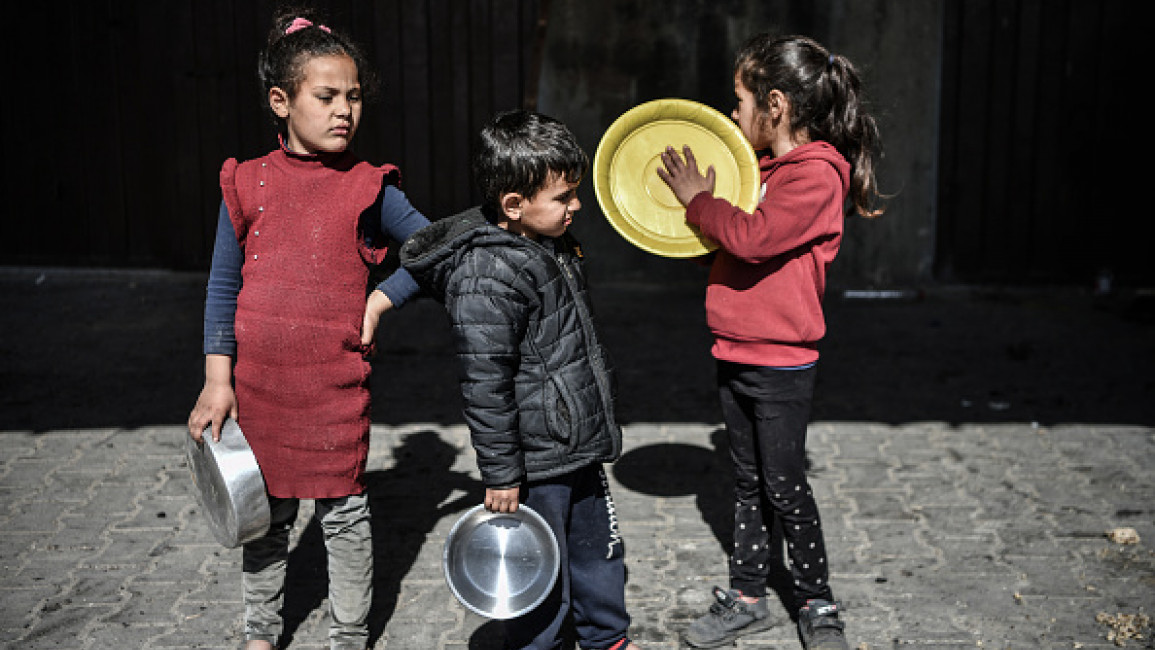UNRWA defunding risks accelerating Gaza famine, HRW warns
Human Rights Watch (HRW) has urged governments to resume funding to the UN's Palestinian refugee agency (UNRWA), warning that the cuts will exacerbate a looming famine in the war-hit Gaza Strip.
UNRWA has said that it will not be able to operate beyond February if international funding it not renewed. A number of Western countries paused financing UNRWA following Israeli allegations that a number of staff members were involved in the October 7 attack carried out by Hamas.
The cuts come amid Israel's war on the Gaza Strip that has killed over 27,000 people, most of them women and children.
Over the past week, several countries including the UK, France, and the US have paused their funding for the agency pending an investigation into the claims. The countries' contributions account for over three quarters of UNRWA's budget, HRW said.
Spain, Belgium, and Norway, however, have confirmed their continued financial support for UNRWA, while stressing the importance of the ongoing probe.
Israel claimed that 12 of more than 10,000 staff members were involved in the attack, while the United Nations said it has terminated the contracts of the accused employees. The Israeli intelligence ministry has since said that six UNRWA staff were involved in the attack.
Over one million displaced Palestinians in Gaza are seeking refuge in or around UNRWA facilities amid deadly Israeli bombing.
Palestinians in northern Gaza are reportedly resorting to eating grass and consuming contaminated water amid crippling shortages caused by the Israeli-imposed siege.
Water in Gaza is highly undrinkable, CNN said, due to high levels of pollution, which is contributing to soaring rates of dehydration and diarrhea.
Scenes of children begging for food in the streets and displaced Gazans queuing for hours and even fighting over the small amount of aid that trickles into Gaza are also commonplace in the territory.
Meanwhile, the Integrated Food Security Phase Classification (IPC) published a report in December stating that most Gazans are left without choice but to skip meals, with many adults going hungry so that their children can eat.
Financial cuts to the refugee agency will undoubtedly exacerbate hunger levels in Gaza, where food and water are already scarce.
Israel has also been accused of using starvation as a method of war against civilians in Gaza, in act of collective punishment throughout its military onslaught. Starvation as a method of warfare is illegal under international humanitarian law and amounts to a war crime.
In a joint statement cited by HRW, 21 humanitarian organisations said that they were "shocked by the reckless decision to cut a lifeline for an entire population by some of the very countries that had called for aid in Gaza to be stepped up and for humanitarians to be protected while doing their job."
The director-general of the World Health Organisation and the group Doctors Without Borders have also reiterated calls to donors not to suspend their UNRWA funding.
Philippe Lazzarini, the Commissioner-General of UNRWA, also echoed similar sentiments. "At the time the International Court of Justice calls for more humanitarian assistance, it is the time to reinforce not to weaken UNRWA. We are the largest aid organization in one of the most severe and complex humanitarian crises in the world," he wrote on X.
Meanwhile, the likes of Bezalel Smotrich, Israel’s far-right minister of finance and prominent backer of the war in Gaza, said on Thursday that allowing humanitarian aid into the territory "goes against" the principles of Tel Aviv’s military offensive.
Smotrich’s comments come as Israeli far-right protesters have demonstrated against the entry of humanitarian trucks and even blocked many from entering Gaza in recent days, in a bid to deprive Palestinians of any kind of relief.


